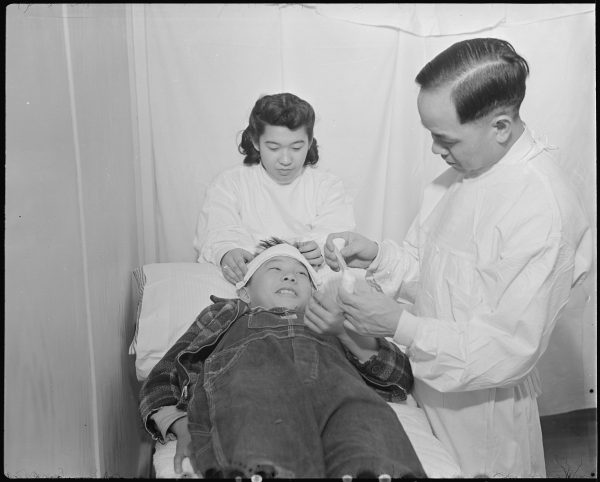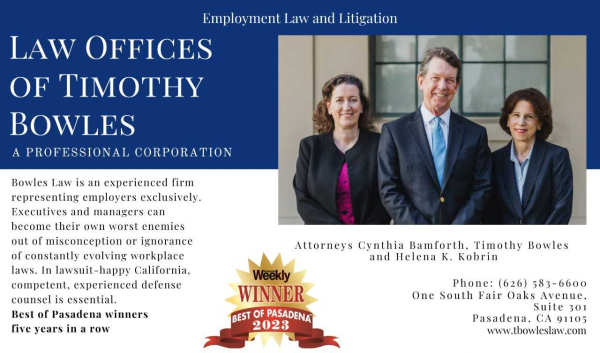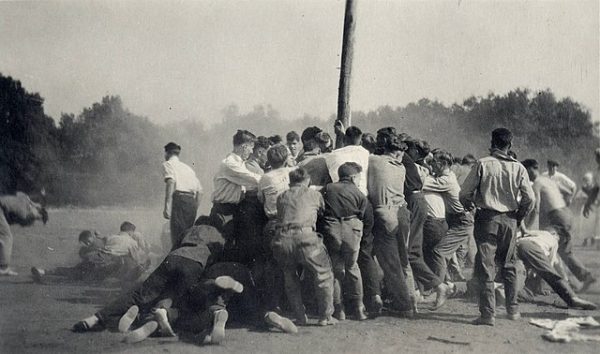Blog

WHAT’S NEW IN 2024
COMPUTER SOFTWARE EMPLOYEE OVERTIME EXEMPTION RATES
California Labor Code section 515.5 exempts certain computer software professionals from overtime compensation upon receipt of specified minimum compensation.

WHAT’S NEW IN 2024
RETALIATION WAKE-UP CALL
Employer Discipline, Termination May Be Presumed Illegal
SB 497, going into effect on January 1, 2024, amends Labor Code sections 98.6, 1102.5, and 1197.5 to make it easier for employees to win retaliation claims.

Wishing You a Very Happy Holiday

WHAT’S NEW IN 2024
PHYSICIANS AND SURGEONS OVERTIME EXEMPTION RATES
California Labor Code section 515.6 exempts certain licensed physicians and surgeons from overtime compensation upon receipt of specified minimum hourly compensation.
California’s Department of Industrial Relations (DIR) has announced its rate increases for this minimum, effective January 1, 2024, to $101.22, up from $97.99, reflecting the 3.3% increase in the California Consumer Price Index for Urban Wage Earners and Clerical Workers.

WHAT’S NEW IN 2024
WORKPLACE VIOLENCE PREVENTION PLAN
California Employers Must Implement Comprehensive Violence Prevention Plans and Training by July 1, 2024
Under the newly enacted Labor Code section 6401.9, California employers must establish, implement and maintain an effective workplace violence prevention plan (the Plan); training materials; and a violence incident log.
The law does not apply to employees teleworking from a location of their choosing and control; health care facilities covered under Cal/OSHA’s Violence Prevention in Health Care regulation; law enforcement agencies; correctional facilities; and locations not accessible to the public where less than 10 employees work at any given time.

WHAT’S NEW IN 2024
EXTENDED COMEBACK RIGHTS
Hospitality Workers to Receive Longer Rehire Protection
Since 2021, California has required certain hospitality and business services industries to give rehiring preference to workers laid off because of the pandemic.

FIVE-PEAT!
For the fifth year running, Law Offices of Timothy Bowles is Best of Pasadena’s best law firm. Thanks to everyone who voted and supported us. We are pleased to continue to provide experienced and trustworthy guidance to business navigating the difficulties of California employment law.

WHAT’S NEW IN 2024
NON-COMPETE NO NOS
Existing Business and Professions Code 16600 prohibits California employers from having their employees sign non-compete clauses that restrain them from engaging in lawful professions, trades or businesses.
The legislature has now created these additional prohibitions:

WHAT’S NEW IN 2024
REPRODUCTIVE LOSS LEAVE
Senate Bill (SB) 848, effective January 1, 2024, requires such employers to provide a separate form of leave for up to five days of consecutive or non-consecutive leave following a “reproductive loss event,” such as a failed adoption, failed surrogacy, miscarriage, stillbirth, or an unsuccessful assisted reproduction (i.e., an unsuccessful round of intrauterine insemination or embryo transfer). Both parents are eligible for this leave.

WHAT’S NEW IN 2024
EQUAL OPPORTUNITY INTOXICATION?
Off-Hours Cannabis Users Now Protected Against Workplace Discrimination
On January 1, 2024, California will become the fourth state in the union – after Maine, Montana and Washington (plus the District of Columbia) — to bar workplace discrimination for off-the-job and off-workplace cannabis use. As below, the law retains employer rights and obligations to maintain an alcohol- and drug-free workplace and to conduct legally compliant drug screenings.
